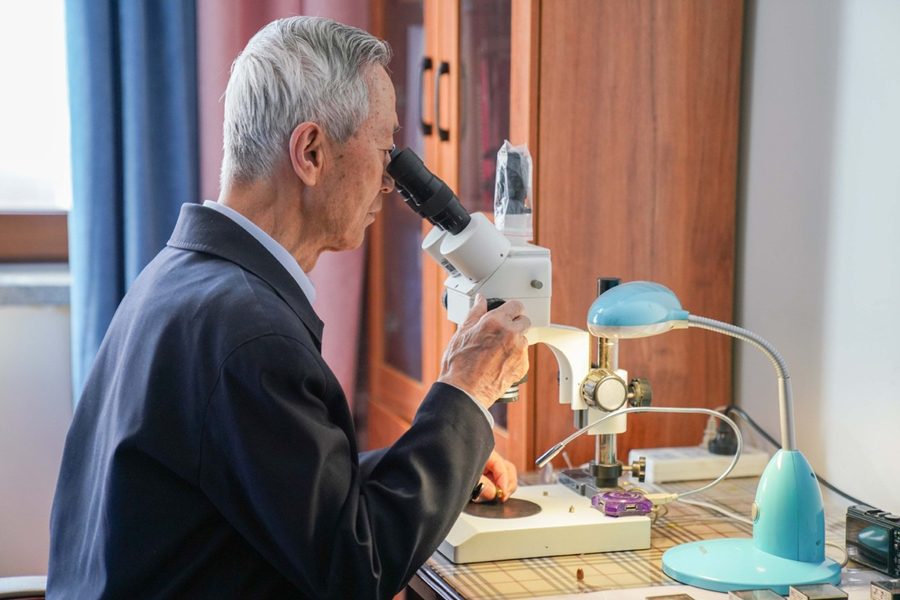Crime scene investigator emphasizes faith in Party

Cui Daozhi conducts an experiment at home in Harbin, Heilongjiang province, on June 8, 2021. [Photo/Xinhua]
However, because he had only been educated to junior high school level, he encountered lots of difficulties at first.
"I couldn't even write a standard crime scene investigation report," he said. "Thanks to the support of the department, I got the chance to continue my studies."
In 1956, he was admitted to the Criminal Investigation Police University of China to study criminal science and technology.
He also undertook further study at Harbin Medical University and a vocational college to gain more knowledge related to his job in the following years.
"These experiences brought me great progress both in theory and practice," he said. "I decided to devote all my abilities to do my best at my job.
"Trace evidence, including fingerprints, footprints, tool marks, bullet marks and other special marks, is crucially important to detecting criminal cases. There shouldn't be any carelessness during the investigation process."
Cui also kept records of the types of evidence he found each day and developed the habit of taking pictures of bullet marks whenever he participated in the investigation of cases involving guns.
"I have collected thousands of photos, covering almost all the shotguns produced in China," he said.
In December 2000, Cui was invited to Zhengzhou, Henan province, to help investigate a case of robbery and shooting.
"The case was particularly difficult at the time because the offenders carried out the attack with a shotgun, but there was little research on bullet marks made by such weapons," he said. "Since I had studied and mastered this knowledge, I immediately provided the information about the shotgun, which was produced in Hunan province."
The information helped local police catch the offenders and find the shotgun they had used.
Cui officially retired in 1994, but he effectively never left his position and put even more energy into researching trace evidence.
In 1997, during a visit to an international criminal equipment exhibition staged by the Ministry of Public Security, he became aware of the need to innovate when he saw a foreign device that automatically identified bullet marks.
After five years of research with his colleagues, he finally invented a Chinese version of the device that used homegrown technologies and performed at an internationally advanced level.
























